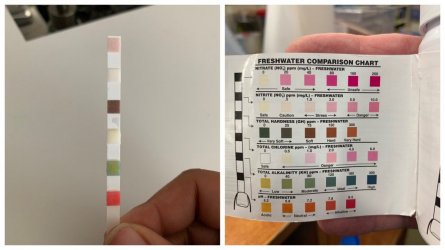Selina Dionne Slotter
New Member
I am new to this hobby and just got some fish on Monday.
The ladies that I had been talking about this to for WEEKS before making the decision to add fish to my tank assured me that the fish I chose to get would be perfectly fine together.
However, my molly fish has started ‘shimmying’ and after doing research about the causes, one reason is that the water may be too soft. They need hard water, along with my guppies.
So then I researched that and my gourami needs soft water apparently?
So they live in two completely different water conditions.
What do I do now?!
PS: I havent gotten my testing kit yet, I had been taking my water to a local pet shiop for testing so I dont have exact levels, I just know that they told me the water was ‘good’.
The ladies that I had been talking about this to for WEEKS before making the decision to add fish to my tank assured me that the fish I chose to get would be perfectly fine together.
However, my molly fish has started ‘shimmying’ and after doing research about the causes, one reason is that the water may be too soft. They need hard water, along with my guppies.
So then I researched that and my gourami needs soft water apparently?
So they live in two completely different water conditions.
What do I do now?!
PS: I havent gotten my testing kit yet, I had been taking my water to a local pet shiop for testing so I dont have exact levels, I just know that they told me the water was ‘good’.



